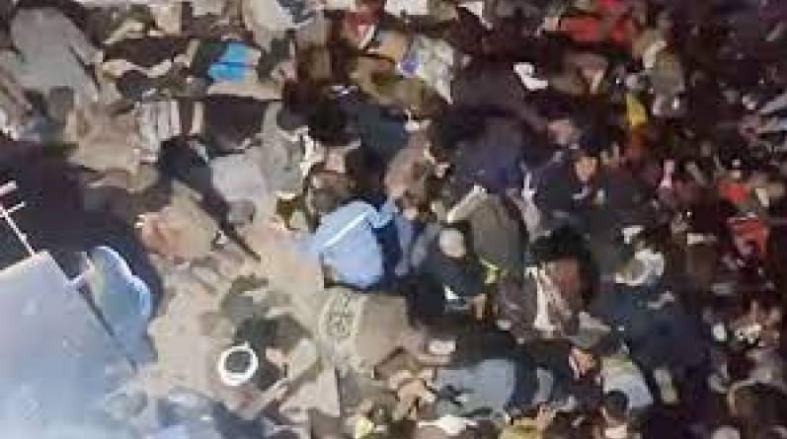Where We Are, Why We Are?
Ishtiaq Ahmed
Allah does not change the state of people until they change it themselves.
At least 78 people were killed in a stampede in Yemen whilst queuing for financial aid distribution. We also hear of regular reports from Pakistan of people losing their lives whilst standing in endless queues for bags of flour on the government’s ill-conceived and badly devised relief program.
If we look at elsewhere, Afghanistan, Syria, Iraq, Libya, even, Iran and Egypt, the stability of the Muslim world is in turmoil. The African Muslim nations and regimes beleaguered by natural disasters, poor governance, internal factional and tribal rivalries are not something that we can be the envy of. Add to it, the long-standing struggles for freedom of Kashmiris and Palestinians and the suffering of Rohingya Muslims at the hands of Burmese authorities, the Muslim world is in a dire state with very little optimism for a positive turnaround to stability, prosperity and safety in the near future.
As we are quickly approaching the end of Ramazan with hours to go to Eidul Fitr, perhaps we need to reflect on the dire state of the Muslim world: Why we are, where we are?
Many would rightly cite a number of interlocking reasons for the present disarray and demise of the Muslim nations for example, the inept leadership, poor governance, corruption, internal factionalism and rivalries, lack of vision and forward planning, squandering of resources, poverty, poor education, poor health etc. The list of ailments is endless.
 There is also a strong belief, and not one without reasons, that the Muslim world is the victim of the Western conspiracy of divide and rule. In the new world order, the Muslim world is the battleground principally for the two superpowers – America and Russia-and the NATO block with China not very far behind although maybe more circumspect and less visible.
There is also a strong belief, and not one without reasons, that the Muslim world is the victim of the Western conspiracy of divide and rule. In the new world order, the Muslim world is the battleground principally for the two superpowers – America and Russia-and the NATO block with China not very far behind although maybe more circumspect and less visible.
However, we can blame our external foes and enemies but we cannot escape the fact that primarily we are responsible for our demise and downfall. It is painful to acknowledge but it is an undeniable truth.
As Muslims, we unreservedly take the view that the fate of nations and their people is ultimately destined by Allah, all Knowing. This is central to how we see ourselves, interpret and understand all that is happening around us.
The Holy Quran states “Verily, Allah will not change the condition of a people as long as they do not change their state themselves” [al-Ra’d 13:11]
This is an important verse that indicates that Allah ( SWT) in His perfect justice and wisdom does not change the condition of the people from good to bad or from bad to good, from ease to hardship or from hardship to ease, unless they change their condition themselves. Allah rewards righteousness with His infinite blessings by easing of the burden but, at the same time, He punishes the wrong doers with calamities, hardship, drought, famine, disunity and other kinds of punishments as appropriate requital. In the Surah Fussilat (41.46) , it is stated “And your Lord is not at all unjust to (His) faithfuls” [Fussilat 41:46].
As we are approaching the end of Ramazan, should we not be reflecting on the state of our Ummah in the light of the above verse.

Indeed the Muslim umma is its own worst enemy, a good article